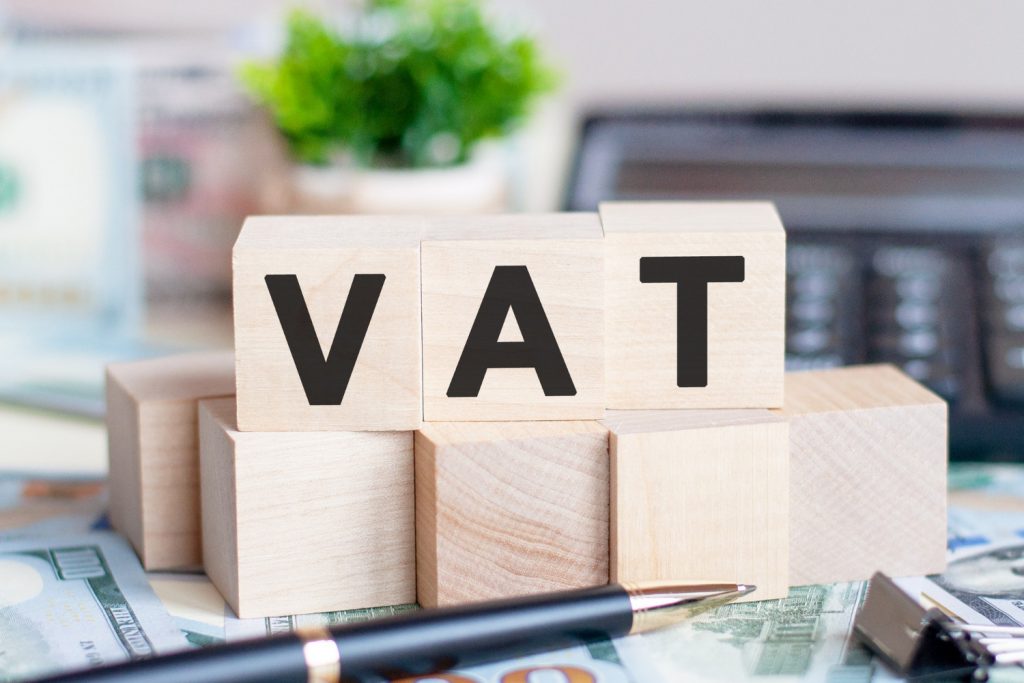
A Guide to Managing Entertainment Expenses
In today’s dynamic business landscape, navigating the complex world of corporate entertainment expenses can feel like walking a financial tightrope….
In today’s dynamic business landscape, navigating the complex world of corporate entertainment expenses can feel like walking a financial tightrope. From client dinners and sporting events to team-building activities and holiday parties, these costs represent more than just numbers on a spreadsheet – they’re vital investments in relationship building and business growth. Yet with ever-changing tax regulations and increasing scrutiny on business expenses, many companies struggle to strike the right balance between generous hospitality and prudent financial management. Whether you’re puzzling over the tax deductibility of client entertainment, seeking clarity on what qualifies as a legitimate business expense, or simply trying to optimize your corporate entertainment budget, you’re not alone. This comprehensive guide will demystify the intricate world of entertainment expenses, helping you make informed decisions that benefit both your business relationships and your bottom line.
What are Business Entertainment Expenses?
Business entertainment expenses encompass the costs incurred when hosting, amusing, or providing hospitality to clients, customers, or business associates for legitimate business purposes. These expenditures typically include activities such as business meals, sporting events, theater shows, golf outings, and corporate hospitality events designed to build and maintain professional relationships. While these costs are often essential for fostering business connections and securing new opportunities, they must be reasonable in nature and have a clear business purpose to be considered legitimate expenses. It’s crucial to understand that not all entertainment expenses are tax-deductible, and different countries have varying regulations regarding what qualifies as an allowable business expense. Proper documentation, including receipts, attendee lists, and business purpose notes, is essential for maintaining accurate records and ensuring compliance with tax authorities.
Types of Allowed Business Entertainment Expenses
- Business meals and client entertainment: Business meals and client entertainment involve expenses incurred while dining with current or potential clients, partners, or stakeholders to discuss business matters. This category includes restaurant meals, catering services, and refreshments provided during meetings. The expense must be reasonable, and there should be a clear business purpose or agenda for the meeting.
- Corporate events and conferences: These expenses cover costs associated with organizing or attending business-focused gatherings, including venue rentals, conference registration fees, workshop materials, and related catering. This category also encompasses team-building events, annual meetings, training sessions, and industry conferences that contribute to professional development and networking.
- Business travel accommodations: This category includes necessary lodging expenses incurred during business trips, such as hotel stays, serviced apartments, or other accommodation options. Coverage typically extends to reasonable additional charges like room service, internet access, and business center usage when traveling for meetings, conferences, or client visits.
- Tickets to cultural and sporting events: These expenses involve purchasing tickets for entertaining clients or business associates at professional sporting events, theater performances, concerts, or other cultural activities. The entertainment must have a clear business purpose, and detailed records should document attendees and the business discussions that took place.
- Corporate gifts and promotional items: This category covers thoughtful gifts and branded items given to clients, prospects, or business partners to maintain relationships and increase brand awareness. It includes seasonal gifts, thank-you presents, branded merchandise, and promotional materials, though monetary limits and gift policies often apply to ensure compliance.
What can’t count as entertainment expenses?
Not all social or entertainment-related expenses can be classified as legitimate business entertainment expenses. Personal entertainment activities, even if clients are present, cannot be claimed as business expenses. This includes social club memberships, vacation expenses, leisure activities without a clear business purpose, and family entertainment costs. Recreational facilities owned or rented by the company primarily for employee or owner use are also not deductible. Entertainment expenses that lack proper documentation, don’t have a clear business purpose, or are deemed lavish or extravagant by tax authorities cannot be claimed. Additionally, expenses related to adult entertainment venues, gambling activities, or personal hobbies are strictly prohibited. The cost of entertaining spouses or family members of business associates generally doesn’t qualify unless there’s a legitimate business reason for their presence.
Staff vs Client Entertainment
Staff entertainment and client entertainment are treated quite differently for tax and accounting purposes. Staff entertainment, such as holiday parties, team-building events, and annual celebrations, can be tax-deductible under certain conditions. For example, the UK allows tax relief on annual staff events costing up to £150 per person, provided these events are available to all employees. Staff entertainment can also be VAT-recoverable if it meets specific criteria.
In contrast, client entertainment, which includes taking clients to meals, sporting events, or shows, generally isn’t tax-deductible in many jurisdictions. While these expenses are legitimate business costs and can be recorded in company accounts, businesses typically cannot reclaim VAT on client entertainment or deduct these costs against their taxable profits. The key is maintaining clear records that distinguish between staff and client entertainment, as mixing the two can complicate tax compliance and potentially lead to rejected expense claims.

Is client entertainment tax deductible?
Client entertainment expenses in Belarus are considered “limited expenses” and can be tax-deductible, but with strict limitations. The key restriction is that these expenses are capped at 1% of the company’s annual revenue, including VAT. This limit encompasses not just entertainment but also representation fees and delayed interest on loans collectively.
This approach differs significantly from countries like the UK where client entertainment is not tax-deductible at all and VAT cannot be reclaimed on these expenses. In the UK, only staff entertainment may qualify for tax relief under specific conditions.
For businesses operating in Belarus, it’s essential to note that entertainment expenses must be properly documented and business-related to qualify for deduction within the permitted limits. The costs need to be tracked separately for tax compliance purposes, and given the complexity of these regulations, working with a Belarusian tax professional is recommended to ensure proper compliance with current tax laws and maximize allowable deductions within the permitted threshold. This professional guidance becomes particularly important when managing entertainment expenses alongside other limited expense categories that fall under the same 1% revenue cap.
Is Employee Entertainment Tax Deductible?
Employee entertainment, unlike client entertainment, generally enjoys more favorable tax treatment in most jurisdictions. Staff entertainment expenses can be tax-deductible provided they meet specific criteria. In Belarus, corporate recreation and entertainment events for employees can be paid entirely by the employer as a benefit. These expenses are typically considered part of employee compensation and welfare, making them tax-deductible business expenses. However, proper documentation is essential, including event details, attendee lists, and associated costs.
The key is maintaining clear separation between staff and client entertainment in accounting records, as mixing the two could lead to complications with tax authorities and potentially result in denied deductions.
Documents Required to Get VAT on Staff or Client Entertainment
To properly document and claim VAT on entertainment expenses, businesses must maintain comprehensive documentation. For client entertainment and representation expenses in Belarus, required documentation includes an official company policy regarding delegation receptions and entertainment expense accounting, especially for organizations that regularly host delegations. The company director must issue formal orders authorizing the reception of delegations or individuals and approve the associated expenses.
Each event requires detailed documentation including an official program outlining the delegation’s visit schedule, a preliminary cost estimate for hosting and servicing the delegation, and a post-event financial report detailing how funds were used. Additional supporting documents must demonstrate the business purpose and nature of these expenses.
For staff entertainment events, businesses need the director’s formal authorization for official events and related expenses, a detailed budget for entertainment costs, original receipts and invoices from vendors or service providers, and a comprehensive report on entertainment expenses for each event. All documents should clearly separate staff entertainment from client entertainment expenses.
Every expense claim must be supported by primary documentation such as invoices, receipts, and payment confirmations. The documentation should clearly show the business purpose, attendees, date, location, and nature of the entertainment. This thorough documentation helps ensure compliance with tax regulations and supports VAT claims where applicable.
Conclusion
Managing entertainment expenses, whether for staff or clients, requires careful attention to documentation, tax regulations, and compliance requirements in Belarus. From proper classification of expenses and maintaining detailed records to understanding the 1% revenue cap on deductible entertainment costs, businesses need to navigate complex regulatory requirements. The distinction between staff and client entertainment, along with their different tax treatments, adds another layer of complexity to expense management.
EOR.by specializes in helping businesses navigate these challenges. Our experienced team of accountants and tax professionals can assist you with setting up proper documentation systems, ensuring compliance with Belarusian tax regulations, and maximizing allowable deductions for entertainment expenses. We handle everything from creating internal policies and maintaining required documentation to preparing expense reports and tax filings. Let us manage the complexities of your entertainment expense accounting while you focus on building valuable business relationships.
Our Blog
The latest news in our blog
IT Education in the HTP
IT education plays a key role in shaping the workforce for the modern digital economy. For information technology companies and…
“International Company” Status (for IT Companies)
For IT companies operating in international markets, the choice of jurisdiction and legal status is a critical factor for sustainable…
Congratulations on New Year 2026 from the EOR.by team!
Dear friends, partners and clients! The EOR.by team wholeheartedly wishes you a Happy New Year 2026! The past year has…
Contact
We’re available for the new projects



